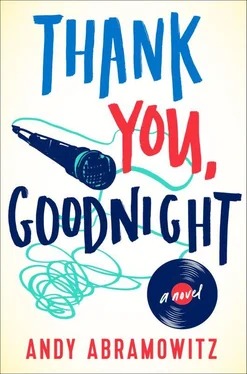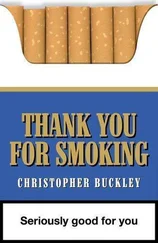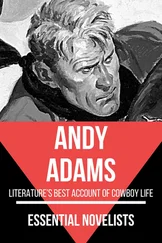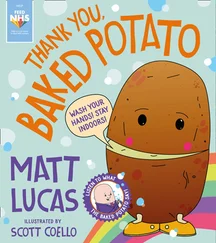“Where’s Mackenzie?” I croaked.
Alaina shrugged. Jumbo shrugged. All eyes looked to Marin.
“I think the bathroom,” she said.
Mack appeared in the door frame behind Alaina. Such intense relief washed over me at the sight of her that my arms went numb.
“Holy fucking shit,” I exhaled.
She greeted Warren and me somberly. “Hey guys.”
“Jesus Christ, Mack,” I said, on the verge of crumbling into a lifeless mass. “I swear to God. I fucking swear to God.”
Warren was in a panic. “I’m walking out of here forever if somebody doesn’t tell me right now what’s going on!”
Without lifting her eyes off the austere gray carpet, Alaina breathed out a leaden sigh. “There was a fire at Sonny’s studio last night. And he was in it.”
I scoped the room uncomprehendingly.
“Sonny’s dead?” Warren ventured, his voice small.
Alaina nodded.
My mouth dropped slack. My brain repeated the words, hoping the echo would lead me to a different meaning.
“Is this for real?” Warren asked.
I slumped into a chair. Warren remained immobile. Routine office noises—ringing phones, subdued conversations of passersby—mixed with Jumbo’s sniffling.
“Marin, will you have some coffee sent in?” Alaina softly asked her assistant. The girl nodded and made for the door, brushing past all of us with her eyes cast downward. “Thanks, doll,” Alaina added.
Jumbo was rubbing his large red face and occasionally dropping his chin onto the cherrywood table. Mackenzie sat down next to him and glided her open hand over the rolling hills of his back. With searching, childlike eyes, he looked at her and bleated, “I’m really not good with death.”
This couldn’t have happened. It was against the rules.
After moments spent in a quiet, private absorption of the news, we got up and lumbered into Alaina’s office, positioning ourselves around the TV. From her desk chair, Alaina clicked through channels until landing on a young bleach-blond newscaster trying to look grave. With a photo of Sonny’s face framed in the corner, she spoke in funereal tones:
“The music world is in mourning today, as legendary record producer Sonny Rivers has died in a fire at his Los Angeles recording studio. The fire is believed to have started late last night and the cause of the incident is still being investigated. At this time, neither foul play nor drugs are believed to have played any role in this tragic event.”
You have to lead with the no-drugs thing. A musician dies and people always assume he was found with a needle in his arm.
Details were still unfolding, but the preliminary report from the fire chief was that there had been an electrical problem. The wiring of an old piece of recording equipment had somehow ignited. From the look of things, Sonny was trying to put it out when he lost consciousness from smoke inhalation. The narrative brought a bleak smile to my face. He did love those vintage units, and I could easily picture him resolving to either stomp the guts out of any flames that threatened to swallow his gear or die trying.
On the flat-screen, we watched as impromptu eulogies came sputtering out of the mouths of musicians, executives, and agents when microphones were thrust before their HD faces. Outside their homes and their cars, or calling in to morning radio shows, they expressed grief and shock and sadness, all of it laced with unsurpassed levels of praise.
“This is a tremendous loss for the recording industry,” said a well-known elder statesman who looked like Colin Stone with earrings. “As much as we revere his work now, we won’t know for years, possibly decades, the profound impact Sonny had on music as we know it.”
I sniffed in disdain. This was no time for bogus insight. Is there music as we don’t know it?
A clip from London showed an icon of the British invasion looking distraught, fumbling for words: “I can’t even begin to express what Sonny’s contribution has been . . . He was, you know, a true visionary . . . I can’t believe the River man is gone. We’ll miss you, old friend.”
The faces of the musicians he recorded with and the covers of the albums he produced were flung across the screen in montage format to illustrate the broad sweep of his influence. In the parade of artwork, most of them instantly recognizable classics, some veritable cultural symbols, the cover of our own The Queen Kills the King skipped past.
Then the artificially blond anchorwoman transmitted to the world one last obituary item, one that Sonny might’ve preferred was omitted: “Rivers had just completed work on the would-be comeback album by rock act Tremble, a band he guided to multiplatinum success in the midnineties with the breakout hit ‘It Feels like a Lie.’ ”
And at that moment, amid the intense shock, the anguish, and the wall-shaking unease, another sensation swelled within me just as powerfully.
Gratitude.
Sonny Rivers, on the day of his death, was being heralded as one of the greatest contributors of all time to the world of popular music, and Tremble, a ragtag group of has-beens, was the band to whom he devoted his very last perspiration. I’d been given one note to play, just like everyone else—I’d smeared it, growled it, sharped it, flatted it, done as much as I could with it. And in the end, the humble ruckus I’d managed to raise was just one undeserving man’s good fortune.
Alaina spoke up. “We’re going to get calls, guys.” She swiveled her chair in my direction. “They’re going to want to talk to you. You guys are Sonny’s swan song. It’s going to get attention.”
“You can all do whatever you want,” I said. “I’ve got no sound bites for the AP.”
Mack came gunning at me. “That’s a little selfish. No comment? We don’t owe Sonny a few nice words? I’ve got some if no one else does.”
Just then, with a polite knock, Marin appeared with a young man pushing a cart of stainless steel coffeepots and off-white ceramic mugs. The man guided the cart up against the wall, then silently departed. Before showing herself out, Marin craned her neck toward the television, trying to catch a few moments of coverage before being dismissed, but Alaina told her to pour herself a cup and sit down.
“Anybody know how old he was?” Mack asked.
“I’d say early to midsixties,” Jumbo postulated. He was on Alaina’s sofa, his hair in wild dizzy curls from the constant exploration by his grieving hands. “Sixty-five, sixty-six at most.”
“He was forty-nine,” I said, staring at the TV. “Forty-nine.”
There was a part of me that applauded Sonny for finding himself a nice cinematic demise, an exit worthy of his life. A radiant blaze torching every thought in his head, melting every word in his mouth, consuming every act of genius he hadn’t yet perpetrated on the world, leaving it all in a ruin of embers.
And then it struck me. I’d never learn that ominous fact about the new record that Sonny had mentioned at the Plum. That thing he promised to tell me, that thing I needed to know—I’d never know it. I wondered what disadvantage that left me with, this essential piece of information that literally went up in smoke. When there are things out there we should know, it would seem better to know them. And if we end up not knowing them, it would seem better not to know that they’re out there.
Jumbo leaned forward. “So, what if he’s not really dead?” Nobody said anything. “Come on. Many of the greats have faked their own death. Jim Morrison, Michael Jackson, even McCartney. Think about it, guys.”
Alaina rocked in her leather chair. “Okay, Jumbo, that was very helpful, but is it okay if we proceed on the assumption, at least for the time being, that he’s not faking? Is that okay with everybody?
Читать дальше












